Salon.Vision
Marshall McLuhan
Marshall McLuhan: "Art as Survival in the Electronic Age"
"Art as Survival in the Electric Age"
These are the words of Marshall McLuhan given in a lecture at Columbia University in 1973
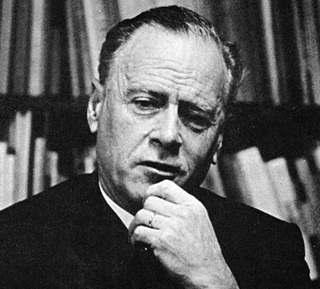
McLuhan understood the tremendous societal influence that the artist can have when they put action behind their vision. One entire talk, delivered at Columbia University in 1973, "Art as Survival in the Electric Age," is devoted to demonstrating how in the instantaneous post-electric world the artist alone can provide the insight and knowledge to survive while living at the speed of the computerized world.
In this talk McLuhan reiterates his total commitment, clear from the time of The Mechanical Bride onwards, that it is the artists, musicians, and poets and later the major artists of the popular arts, who are his guides and the only guides who are 50 years ahead of their time, who can provide guidance and the requisite vision. The tradition of those artists, says McLuhan, we now know occupied a major role in the prehistory of contemporary digiculture, beginning with Poe and Baudelaire, involving Rimbaud and Picasso, and continuing in the work of Yeats, Pound, and Eliot. McLuhan concludes by noting "that the job of the artist is to upset all the senses, and to provide new vision and new powers of adjusting and relating to new situations" (p. 223). In almost all of these talks artists appear as guides to understanding media - such as Marcel Duchamp, Wyndham Lewis, and James Joyce. It is clear the one with whom McLuhan felt the closest affinity was Wyndham Lewis, as he indicates in a talk on "Technology, Media and Culture" (1960) when he suggests that Lewis' uniqueness and thoroughness as historian and critic of the period means he is the most complete guide to the arts and letters of his age, providing the crucial critique of the avant-garde's flight from visual values and their embracing of popular culture as illustrated from Duchamp to Joyce (p. 16).
http://www.cjc-online.ca/index.php/journal/article/view/1719/1838
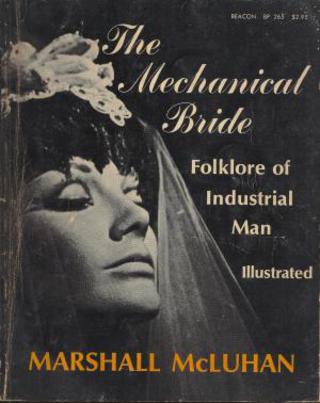
The artist is the man in any field, scientific or humanistic, who grasps the implications of his actions and of new knowledge in his own time. He is the man of integral awareness.
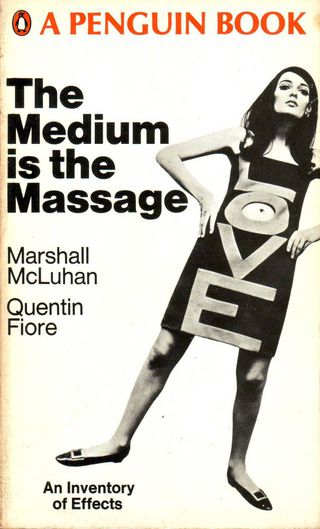
As information becomes our environment, it becomes mandatory to program the environment itself as a work of art.
Great art speaks a language which every intelligent person can understand. The people who call themselves modernists today speak a different language.
I expect to see the coming decades transform the planet into an art form; the new man, linked in a cosmic harmony that transcends time and space, will sensuously caress and mold and pattern every facet of the terrestrial artifact as if it were a work of art, and man himself will become an organic art form.
As the unity of the modern world becomes increasingly a technological rather than a social affair, the techniques of the arts provide the most valuable means of insight into the real direction of our own collective purposes.
Art at its most significant is a Distant Early Warning System that can always be relied on to tell the old culture what is beginning to happen to it.
If people were able to be convinced that art is precise advance knowledge of how to cope with the psychic and social consequences of the next technology, would they all become artists?
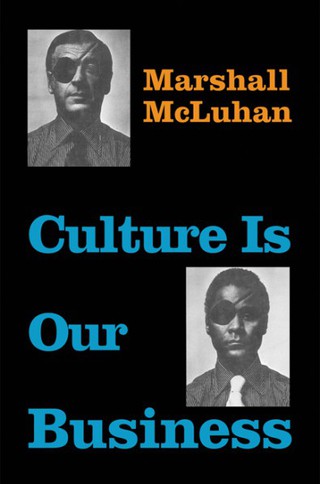
The job of the artist is dislocation of sensibility to prevent us from becoming adjusted to total environments, and to becoming the servant and robots of those environments. … The job of the artist is to upset all the senses, and thus to provide new vision and new powers of adjusting to and relating to new situations.
What we call art would seem to be specialist artifacts for enhancing human perception.
North Americans are the only people in the world (and this is shared by Canadians) who go outside to be alone and inside to be with people. All the rest of the world goes outside to be with people and inside to be alone.
All discoveries in art and science result from an accumulation of errors.
We live in the age of the instant replay, and this is one of the most remarkable developments of any age, since it enables us to have the meaning without the experience.
If men were able to be convinced that art is a precise advance knowledge of how to cope with the psychic and social consequences of the next technology, would they all become artists? Or would they begin a translation of new art forms into social navigation charts? I am curious to know what would happen if art were suddenly seen for what it is, namely, exact information on how to rearrange one’s psyche in order to anticipate the next blow from our own extended faculties.
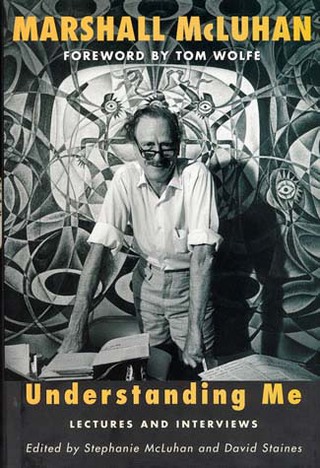
Understanding Me:
Lectures and Interviews
By Marshall McLuhan.
Edited by Stephanie McLuhan & David Staines.
Toronto: McClelland & Stewart, 2003. 317 pp. ISBN 0771055455.
find even more Marshall McLuhan Quotes About Art herehttp://www.azquotes.com/author/9882-Marshall_McLuhan/tag/art
The world of visual perspective is one of unified and homogeneous space. Such a world is alien to the resonating diversity of spoken words. So language was the last art to accept the visual logic of Gutenberg technology, and the first to rebound in the electric age.
Art is anything you can get away with.
I am curious to know what would happen if art were suddenly seen for what it is, namely, exact information of how to rearrange one's psyche in order to anticipate the next blow from our own extended faculties...
All quotes by Marshall McLuhan
JavaScript is turned off.
Please enable JavaScript to view this site properly.